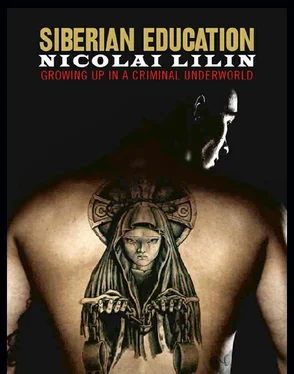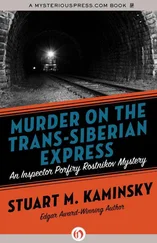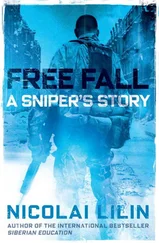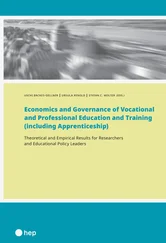As a result, according to the criminal rule, all those who had eaten it had been ‘tainted’ and had therefore fallen to the lowest caste of the criminal community, and would automatically be despised by all, even before they got into the prison. This was one of the tricks the cops often played, to use the criminal rules as a weapon against the criminals themselves. These tricks were most successful with youngsters, who often didn’t know that an honest criminal is not allowed to accept anything from a cop. As my late lamented uncle used to say:
‘The only thing a worthy criminal takes from the cops is a beating, and even that he gives back, when the right moment comes.’
So, thanks to the sudden increase in my authority among my friends, I had begun to do a bit of advertising for the upbringing and education I’d received from Grandfather Kuzya. He was delighted, because this enabled him to influence all of us. And now we boys of the Low River district became known as ‘Siberian Education’ – a name that had been given to the Siberians in exile because of their loyalty to the criminal traditions and their extremely conservative spirit.
In our town every criminal community, especially if it was made up of young people, distinguished itself from the others by its clothes or how its members wore them. They also used symbols, which immediately identified you as belonging to a specific gang, district or national group. Many communities used to mark out their territory with drawings or slogans, but our elders had always forbidden us to write or draw anything on the walls, because they said it was shameful and ill-mannered. Grandfather Kuzya had once explained to me that our criminal community had no need to affirm its presence in any way: it simply existed, and people knew that, not because they saw graffiti on the walls of their homes, but because they felt our presence, and were sure they could always count on the help and understanding of us criminals. The same went for an individual criminal: even if he were a legendary character, he should behave as the humblest of all.
In other districts it was completely different. The members of the gangs of Centre wore gold pendants of their own design. For example, members of the gang led by a young criminal nicknamed ‘Pirate’, who had built up a kind of personality cult around himself, distinguished themselves by wearing a pendant bearing the skull and crossbones of a pirates’ flag. Another gang, from the Railway district, made all its members wear black, to emphasize their loyalty to the Black Seed caste. The Ukrainians of the Balka district, on the other hand, dressed in the American style, or more often like African-Americans. They sang songs which seemed meaningless, and they drew strange things all over the place with spray-cans. One of them had once drawn something in the Bank district on the wall of an elder, a former prisoner, and in revenge a young criminal, who was a neighbour of the old man, had shot him.
I remember commenting on this to Grandfather Kuzya. I said that in my opinion killing was unjust. You could demand compensation for the insult and the nuisance, and then you could always beat the guy up – a good thrashing will usually get a bit of sense into a guy’s head. But Grandfather didn’t agree with me and said I was too humane – too humane and too young. He explained to me that when boys went down a wrong road and wouldn’t listen to their elders, in most cases they harmed themselves and those around them. The Ukrainian boys were putting at risk many youngsters of other districts, who would imitate them, because being ill-mannered was always easier and more attractive than following the road of good manners. Therefore it was necessary to treat them with cruelty and absolute severity, to make everyone understand where the path of disobedience to the traditions could lead. He added:
‘Anyway, why do they pretend to be American blacks and not, say, North Koreans or Palestinians? I’ll tell you why: this is filth that comes from the devil, through the television, the cinema, the newspapers and all the trash that a worthy and honest person never touches… America is a cursed, godforsaken country, and everything that emanates from it must be ignored. If these fools play at being Americans, soon they’ll be whooping like monkeys instead of talking…’
Grandfather Kuzya hated everything American because, like all Siberian criminals, he opposed what represented power in the world. If he heard anyone talk about people who had fled to America, of many Jews who had made a mass exodus from the USSR in the 1980s, he would say in amazement:
‘Why on earth does everyone go to America, saying they seek freedom? Our ancestors took refuge in the woods, in Siberia, they didn’t go to America. And besides, why flee from the Soviet regime, only to end up in the American one? It would be like a bird that had escaped from its cage going voluntarily to live in another cage…’
For these reasons, in Low River it was forbidden to use anything American. The American cars which circulated freely all over town couldn’t enter our district, and items of clothing, domestic appliances and all other objects that were ‘made in the USA’ were banned. For me personally this rule was rather painful, since I was very keen on jeans but I couldn’t wear them. I secretly listened to American music – I liked blues, rock and heavy metal, but I was taking a big risk in keeping the records and cassettes in the house. And when my father carried out an inspection of my hiding places and finally found them, all hell would break loose. He would beat me and make me break all the records with my own hands in front of him and my grandfather, and then every evening for a week I would be made to play Russian tunes on the accordion for an hour and sing Russian folk or criminal songs.
I wasn’t attracted by American politics, only by the music and by the books of some writers. Once, choosing the right moment, I tried to explain this to Grandfather Kuzya. I hoped that he would be able to intercede and give me permission to listen to the music and read American books without having to hide from my family. He looked at me as if I had betrayed him and said:
‘Son, do you know why when there’s an outbreak of the plague people burn everything that belonged to the victims?’
I shook my head. But I already imagined where this was leading.
He gave a sad sigh and concluded:
‘The contagion, Nikolay, the contagion.’
And so, since everything American was forbidden, just as it was forbidden to flaunt wealth and power through material things, the people of our district dressed very humbly. We boys were in a terrible state as far as clothing was concerned, but we were proud of it. We wore like trophies our fathers’ or elder brothers’ old shoes, and their unfashionable clothes, which were meant to emphasize Siberian humility and simplicity.
We could have enjoyed life to the full. We were an ancient and very wealthy community, the houses in our area were huge, the people could have lived ‘in grand style’, as the phrase is in our country and in yours, but instead money was used in a strange way: no clothes, jewels, expensive cars, gambling. There were only two things the Siberians were happy to spend their money on: weapons and Orthodox icons. We all had an enormous quantity of weapons, and also of icons, which were very costly.
In all other respects we were humble – humble and in uniform. In winter we all wore quilted trousers – black or dark blue, very warm and comfortable. The jackets were of two kinds: either the classic quilted fufayka, which half the population wore in the days of the USSR, because it was the jacket that was given to workers, or the tulup , which had an enormous fur collar that you could pull right up to your eyes to protect yourself against the harshest cold. I wore the fufayka , because it was lighter and allowed me to move fairly freely. The shoes were heavy, and fur-lined, and there were also long woollen socks to ward off frostbite. On your head you’d wear a fur hat: I had a lovely one, made of white ermine – very warm, light and comfortable.
Читать дальше










